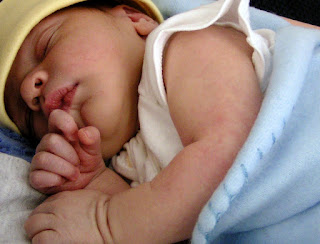There is a pervasive undercurrent in Western society -- at least the bits of it I get to see. I think a Sylvan Learning Centre ad put it the most succinctly:
A little girl, probably ten, going flaming red at the front of the classroom as she stutters over reading the word 'island.' Oh, the shame. Then she goes to Sylvan and can read quickly and easily out loud in class.
The undercurrent about learning is that talented people know things without having to learn them. That actually creates the prodigy problem. Let me describe:
Shirley Temple was an amazing dancer.
For a three-year-old.
She was a remarkable dancer for an eight-year-old.
She was quite an ordinary dancer for a thirteen-year-old.
As an adult, she was bright enough to do something other than trying to dance.
You see, being naturally talented at something is a bit of a problem... it stops people from knowing that they need to learn how to get better at things (if that's what they want to do.)
For a three-year-old.
She was a remarkable dancer for an eight-year-old.
She was quite an ordinary dancer for a thirteen-year-old.
As an adult, she was bright enough to do something other than trying to dance.
You see, being naturally talented at something is a bit of a problem... it stops people from knowing that they need to learn how to get better at things (if that's what they want to do.)
When I was spending a lot of time at the dance studio, as my children were taking classes, the prodigy problem was visible. The children who were good dancers before they were 10 (some of them had been great dancers at 4 or 6) were appalled by how fast my kids learned to dance as well as they could. When they noticed, and it was impossible not to, they either got angry and left dance entirely or got extremely competitive at my kids.
The thing is, having up to that point relied on 'I don't have any idea how I learn this stuff,' when they get to the age with everyone else who's got 12 or 13 years of 'I have figured out how to learn things' they are surpassed and they have no resources for how to deal with that. If they've thought of themselves as 'naturally talented' (which they probably are), they have no idea how to bring 'intentional learning' to the task.
 And herein lies a problem that is dealt with in some detail by Carol Dweck in Mindset: the new psychology of success: the fixed mindset. If someone (or the entire culture they find themselves in) feels that 'this is it' in terms of talent or ability, they will approach any problem or opportunity facing them with a simple response: I can or cannot do this, and there is nothing I can do about that.
And herein lies a problem that is dealt with in some detail by Carol Dweck in Mindset: the new psychology of success: the fixed mindset. If someone (or the entire culture they find themselves in) feels that 'this is it' in terms of talent or ability, they will approach any problem or opportunity facing them with a simple response: I can or cannot do this, and there is nothing I can do about that.
The alternative is the 'learning mindset' -- the one that says 'everything people do, they learn to do first, so I can (if I want to, and apply myself, and do what it takes) learn anything people can do.'























